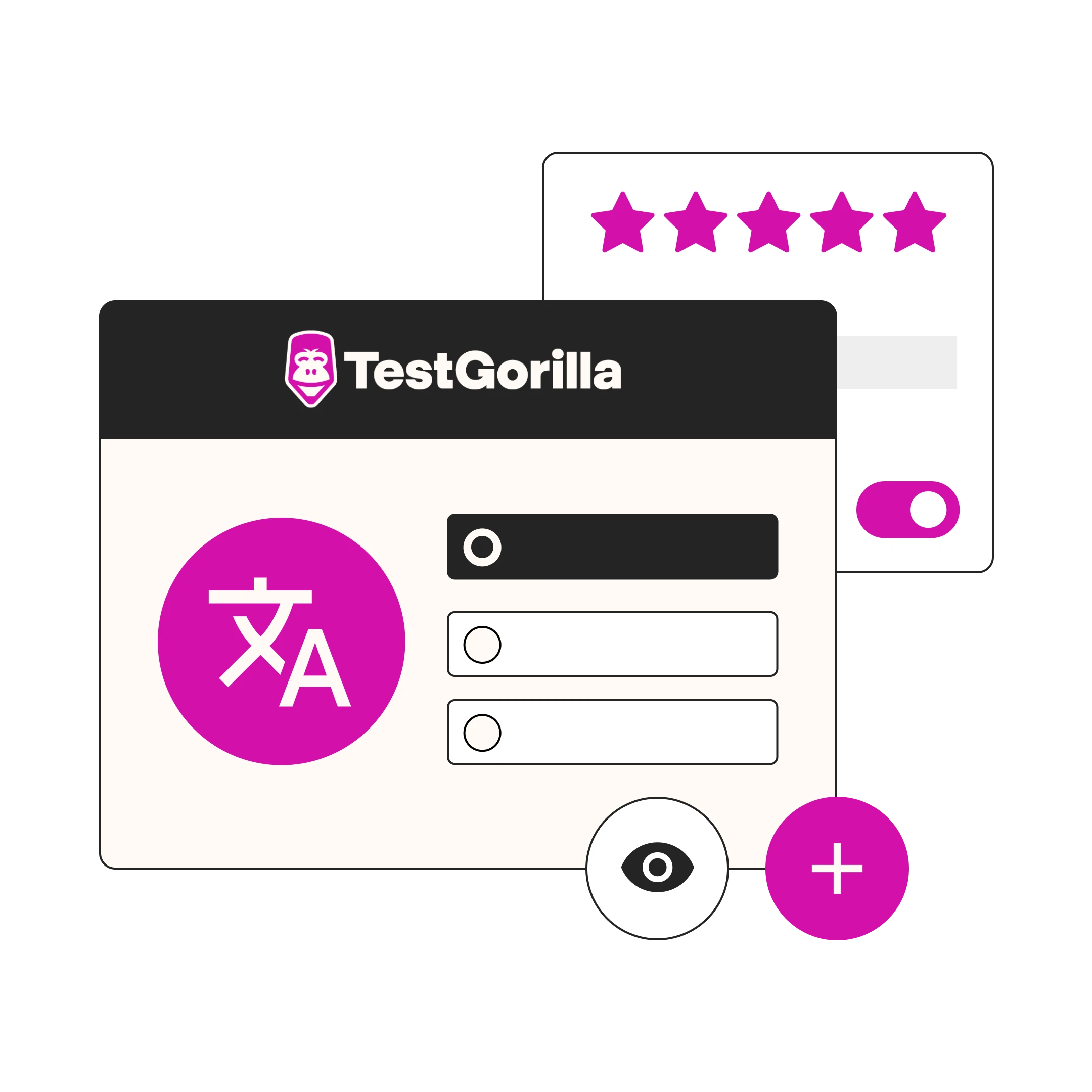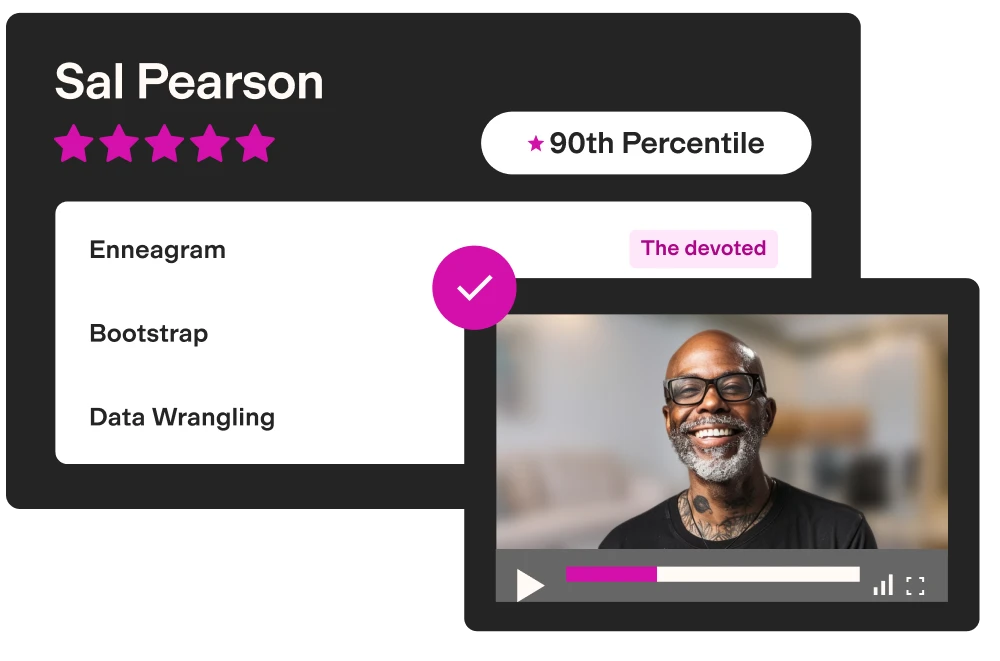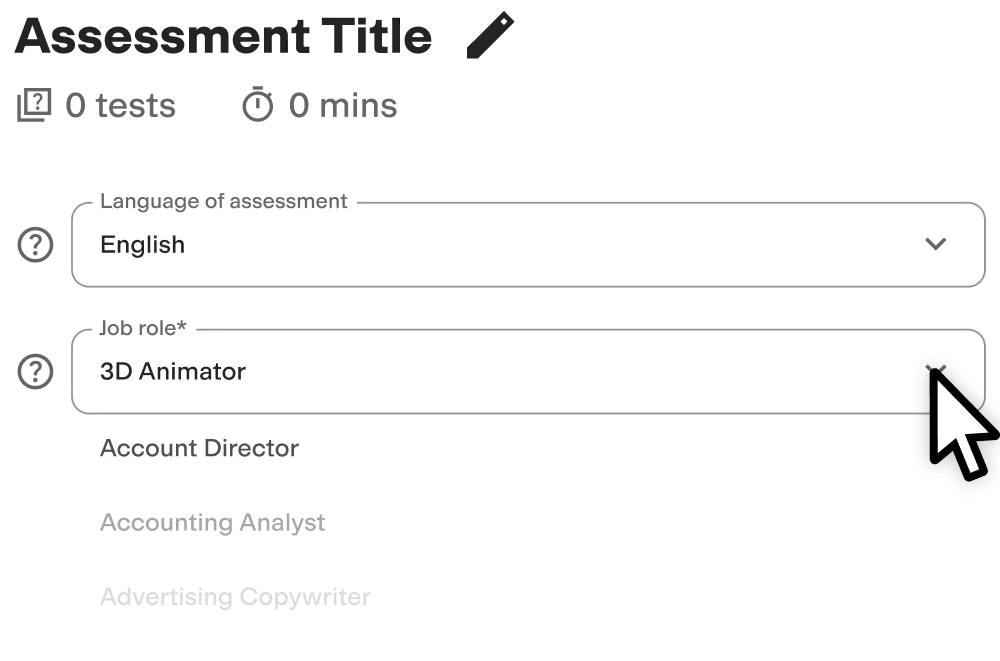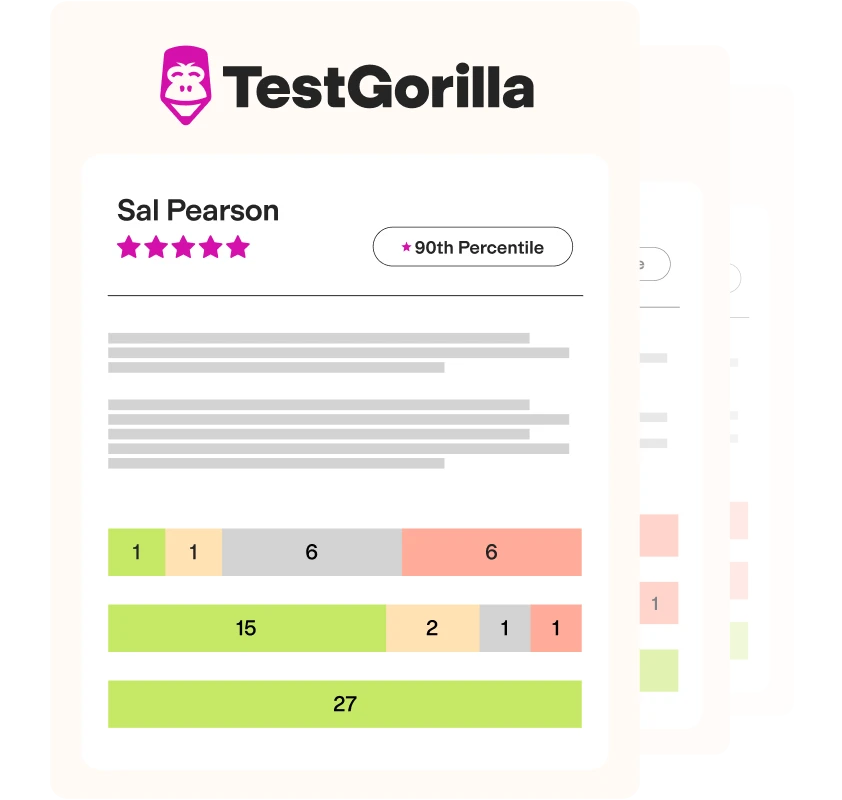Spanish B2 (Upper Intermediate) test
Summary of the Spanish B2 (Upper Intermediate) test
The online Spanish B2 (Upper Intermediate) proficiency test evaluates a candidate’s Spanish skills at the B2 level of the CEFR framework. This pre-employment test will help you hire employees who can communicate fluently and who are able to understand a wide range of specialized topics.
Covered skills
Vocabulary & grammar
Sentence composition
Reading comprehension
Listening comprehension
Use the Spanish B2 (Upper Intermediate) test to hire
Customer success managers, account managers, sales reps, product managers, project managers, marketing designers, and any other roles that require a strong grasp of Spanish language.
About the Spanish B2 (Upper Intermediate) test
Employees with the ability to communicate in Spanish at the upper intermediate level will improve your company’s internal and external communications by removing language barriers and improving the flow of information and collaboration among colleagues, and to and from customers.
The Spanish B2 (Upper Intermediate) test evaluates a candidate’s Spanish skills at the B2 level of the CEFR framework. This test will help you hire employees who can communicate fluently about many topics and who are able to understand a large range of specialized vocabulary.
Knowledge of Spanish at the B2 level of the CEFR framework provides the ability to understand and accurately use vocabulary and expressions related to employment, environment, health, and new technologies, among other subjects.
Candidates with this level of Spanish are able to express themselves on a wide range of topics, express opinions, and outline the advantages and disadvantages of various options with fluency and spontaneity. This test will help you identify candidates who need to speak and understand Spanish in all sorts of work environments.
This Spanish B2 (Upper Intermediate) test evaluates candidates in advanced Spanish vocabulary and grammar, as well as complex sentence composition. It also assesses candidates’ reading and listening comprehension skills through complex sentences.Candidates who do well on this test use complex sentence patterns in Spanish to communicate information in all kinds of contexts.
They can make themselves understood, with few (if any) mistakes. They have the Spanish literacy required to read and understand all kinds of Spanish documents they may encounter in everyday life as well as at the workplace, and are able to answer questions and respond to complex requests.
The test is made by a subject-matter expert
Geovanna F.
Having grown up speaking both Spanish and English, Geovanna has had a life-long affinity for languages. Armed with a bachelor’s degree in English and a TESOL certificate, Geovanna has been working as a translator and interpreter for over five years. Her work includes a variety of media such as articles, flyers, websites, manuals, lesson plans, educational content, and much more.
When not busy in her role as a Spanish translator, Geovanna teaches English to Chinese students online.
Crafted with expert knowledge
TestGorilla’s tests are created by subject matter experts. We assess potential subject-matter experts based on their knowledge, ability, and reputation. Before being published, each test is peer-reviewed by another expert, then calibrated using hundreds of test takers with relevant experience in the subject.
Our feedback mechanisms and unique algorithms allow our subject-matter experts to constantly improve their tests.
What our customers are saying
TestGorilla helps me to assess engineers rapidly. Creating assessments for different positions is easy due to pre-existing templates. You can create an assessment in less than 2 minutes. The interface is intuitive and it’s easy to visualize results per assessment.
VP of engineering, mid-market (51-1000 FTE)
Any tool can have functions—bells and whistles. Not every tool comes armed with staff passionate about making the user experience positive.
The TestGorilla team only offers useful insights to user challenges, they engage in conversation.
For instance, I recently asked a question about a Python test I intended to implement. Instead of receiving “oh, that test would work perfectly for your solution,” or, “at this time we’re thinking about implementing a solution that may or may not…” I received a direct and straightforward answer with additional thoughts to help shape the solution.
I hope that TestGorilla realizes the value proposition in their work is not only the platform but the type of support that’s provided.
For a bit of context—I am a diversity recruiter trying to create a platform that removes bias from the hiring process and encourages the discovery of new and unseen talent.
Chief Talent Connector, small business (50 or fewer FTE)
Use TestGorilla to hire the best faster, easier and bias-free
Our screening tests identify the best candidates and make your hiring decisions faster, easier, and bias-free.
Watch what TestGorilla can do for you
Create high-quality assessments, fast
Building assessments is a breeze with TestGorilla. Get started with these simple steps.
View a sample report
The Spanish B2 (Upper Intermediate) test will be included in a PDF report along with the other tests from your assessment. You can easily download and share this report with colleagues and candidates.







